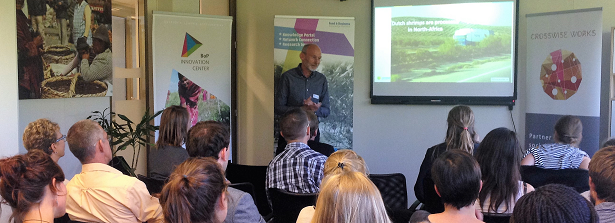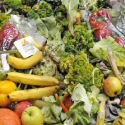Fruitful kick-off Food Connection Challenge

“What a waste!”: is the first thought that comes to mind when you realize that in many food industries up to 40% of food produce gets wasted due to postharvest issues. The Food Connection Challenge (FCC), initiated by BoP Innovation Center and Crosswise Works, is a business-student challenge that focuses on fit-to-purpose solutions for postharvest losses in Ghana. During the kick-off of the challenge on Friday September 23, the different teams enthusiastically started working on innovative solutions for postharvest issues of Ghanaian agri-businesses.
Sixteen students from different cities in the Netherlands participate in the FCC. Together with Dutch and Ghanaian entrepreneurs they will further develop their solutions. Some teams work on challenges that need technical solutions, while others work on cases that need business-like solutions. The teams have to deal with different types of products, ranging from the familiar peanut butter to the exotic and tiny cereal called fonio.
The teams received an introduction on postharvest losses by Michael Jurriaans of Postharvest Network and on agri-business in Ghana by Suzanne Bouwman of RVO, the Netherlands Enterprise Agency.
Now that the FCC has been kicked-off, the teams work vigorously to win the challenge through providing the best solution to the postharvest issues. The final proposals will be presented during the final, which takes place during the annual Afrikadag at the Royal Tropical Institute (KIT) in Amsterdam on November 5, 2016.
The Food & Business Knowledge Platform (F&BKP) has awarded a grant to organize this Food Connection Challenge.







We do have vast lands in Africa, that are not exploited. We also in some countries like Rwanda, South West Uganda, and Eastern Nigeria for example, do have high density of people and these do face production limitations. with some good policies of land utilization and ownership, and with the proper utilization of the continent natural resource – water, the production limitation in mentioned states,could be highly raised if fruits, like an example are produced intensively , irrigated, and processed , or marketed fresh, these could generate a lot of wealth.